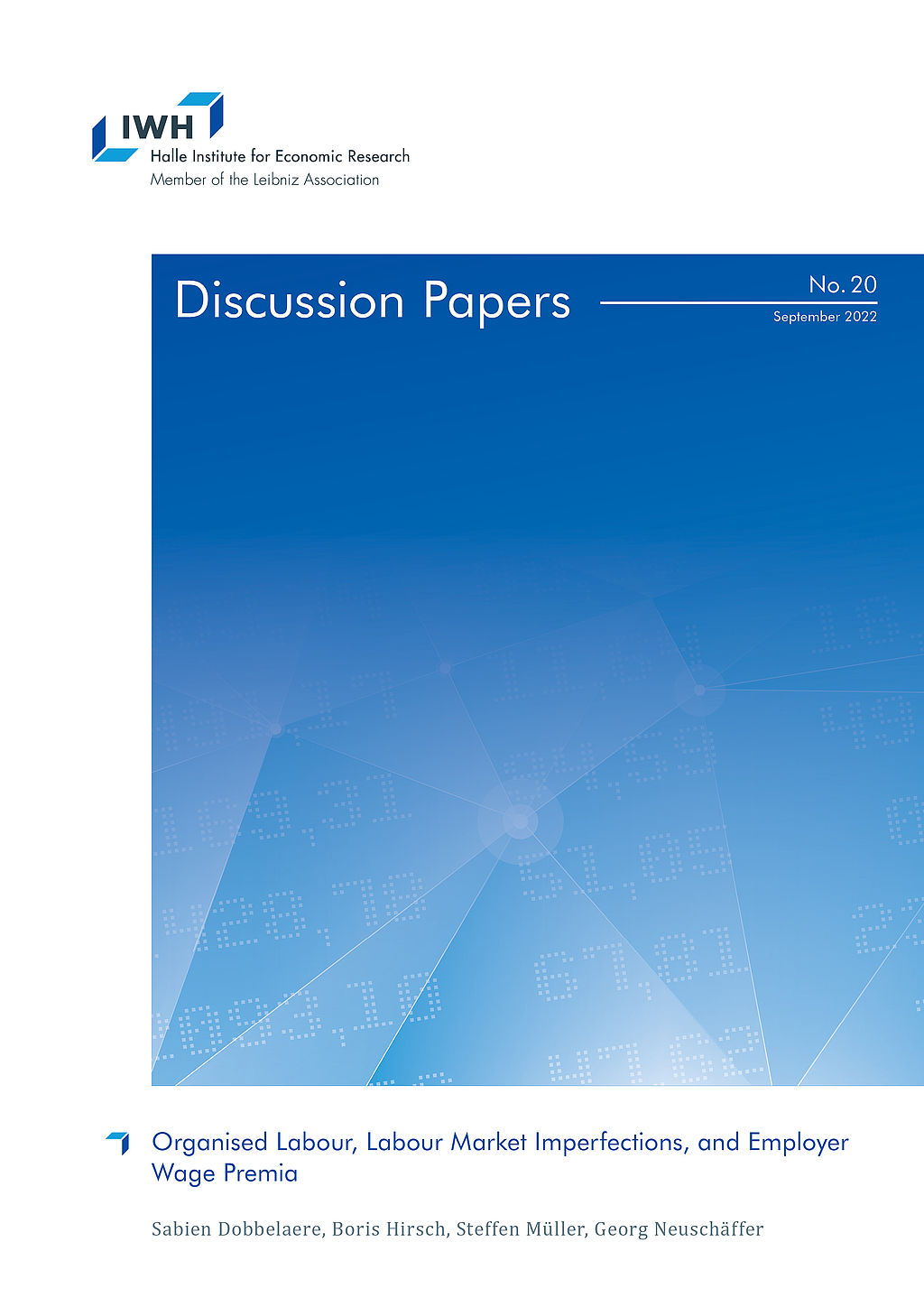
Organised Labour, Labour Market Imperfections, and Employer Wage Premia
This paper examines how collective bargaining through unions and workplace co-determination through works councils relate to labour market imperfections and how labour market imperfections relate to employer wage premia. Based on representative German plant data for the years 1999–2016, we document that 70% of employers pay wages below the marginal revenue product of labour and 30% pay wages above. We further find that the prevalence of wage mark-downs is significantly smaller when organised labour is present and that the ratio of wages to the marginal revenue product of labour is significantly bigger. Finally, we document a close link between labour market imperfections and mean employer wage premia, that is wage differences between employers corrected for worker sorting.





